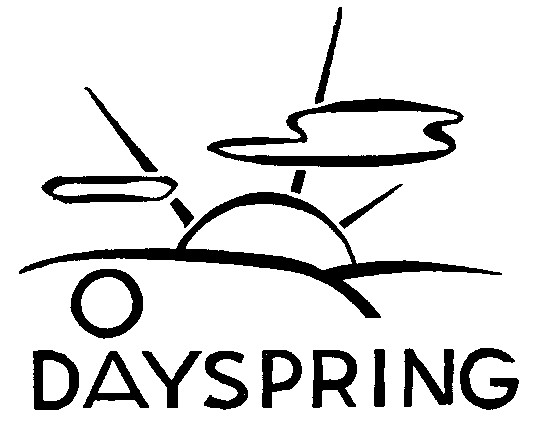 From a reader…
From a reader…
QUAERITUR:
I have noticed an uptake lately in referring to first communion as first Eucharist, usually by people who insist on referring to extraordinary ministers of holy communion as Eucharistic ministers. The uptake seems frequent and widespread enough that it seems deliberate and not accidental, careless or due to ignorance. It does not seem right to refer to first communion as first Eucharist. For one thing it seems to me that this over identifies participating in Mass with receiving communion. For another it implies that children who have not yet received communion have not attended Mass or been present for, or at, the Eucharistic celebration. Either that or, again, the importance of being present at Mass is being minimized or slighted when communion is not received. Am I wrong to find this trend troubling?
Words have meanings which, over time, can drift around. For example, “nice” once meant “foolish, silly”. “Girl” could once indicate either sex (and, come to think of it, it still does). Lexicographers have to make choices when creating dictionaries to determine if their definitions are going to be descriptive (this is how the word is being used) or prescriptive (this is how the word must be used.
In the Church terms drift around or they are used in sloppy ways. Also, we can call one thing by many different names or terms. Think, for example, of how we say “Sacrament of Penance” or “Reconciliation” or “Confession”. In the sloppy department, we hear people say “liturgy” when they mean “Mass”. Liturgy is more than just the Mass.
“Eucharist” can describe both the Blessed Sacrament Itself as well as the liturgical rite of Mass wherein the Eucharist is consecrated. “Communion” can describe reception of the Eucharist. However, Communion can be received within the context of Mass or outside the context of Mass.
When I hear or read “First Eucharist”, I get what is meant, but to my ear and eye that seems like going to Mass for the first time. It could, I suppose mean going to Exposition for the first time, though I’m stretching. “First Communion” more clearly describes what is happening: the person is received Holy Communion, the Eucharist, for the first time.
I suppose that “First Eucharist” came from someone – one of those Good Idea Fairies – who had an “idea” after attending a liturgy workshop.
Let’s continue to use clear and precise terms. You brought up the confusion of Extraordinary Ministers of Communion or of the Eucharist. These are two different roles.
Heck, even the word “Extraordinary” these days isn’t well understood. After all, “extraordinary” can mean quite a few things, depending on the context. For example, upon hearing “First Eucharist” for “First Communion” a British friend of mine would respond, “How extraordinary!”
































I believe First Eucharist (along with First Welcome for Baptism and First Encounter for Confession) is the term suggested for use in that amazing manual Kute, Klever, and Kreative Katholic Krafts and Koncepts, written by Sister Nouveau Mary (Sisters of the New Covenant). Last I heard, Sister was still busy working on her Phd. in Extrapolative Linguistics at Georgetown University’s Institute of Neocatholic Studies.
It has been my contention for a long time that the word “eucharist” is being over-used. I don’t receive the “eucharist”. I receive the “Body of Christ”. It is the “sacramentum corporis Christi”. The word “eucharistia” has its meaning, but these days we rarely hear anyone speak of the Body of Christ.
I would resist using a new expression like “first Eucharist” simply on the grounds that there is a perfectly good expression already available, in use, customary, and crystal clear. To intentionally create a new expression for the exact same thing without need is foolish. Not only that, it gives further fodder to the trend of dissing custom and tradition, the evil and damaging “if it’s old, it’s bad” attitude. These people who do this (as Fr. Z says, the fruits of some “liturgy workshop”) are imagining problems that don’t exist: there is nothing about “First Communion” that is wrong or imperfect that “First Eucharist” corrects or improves upon.
Besides, “First Eucharist” could be mistaken to mean the first time Christ offered his body and blood, at the Last Supper – a specific event 2000 years ago.
I think it was the Latin “Good Idea Fairy” who came up with the practice of separating “first communion” from baptism and chrismation/confirmation in the first place.
“Words have meanings…” Oh Father, one of my pet peeves is “fooling around” with the language of Holy Mass. I completely agree with Andrew that the word “eucharist” is overused, just as “liturgy” is . We have a “priest in residence” who has been teaching at my once Catholic Alma Mater. He really takes liberties with the Mass and it disrupts the supernatural flow. The offenders never think of that, do they? It’s never called “Mass”, by this priest, but the liturgy. The power of words is what the destroyers have never understood , or maybe they did understand when they destroyed our worship in Latin.
The good idea fairy–hahaha–I like that. I think some of this using new words and phrases for already suitable words and phrases is intentionally done to water down meanings and toss out the old. It’s also a subtle way to alter people’s feelings and perceptions. Like gaslightjng. If you say enough times people won’t remember the old ways.
I also suspect it’s code for who is progressive and who isn’t.
But I also think it’s the product of too many committees, certifications and degrees and “professional” organizations. These folks have to have something to do! Some parishes have liturgical committees that meet every week to coordinate the Mass. what a wasted effort in time and money (for these people are always on staff).
Communion is a part of the celebration of the Eucharist, specifying the component of the celebration whereby the people receive the Eucharist at Communion. There are other components to the celebration of the Eucharist, however. To change “First Communion” to “First Eucharist” undermines the whole celebration of the Eucharist with all its parts, making it sound like it’s the first time someone is going to Mass.